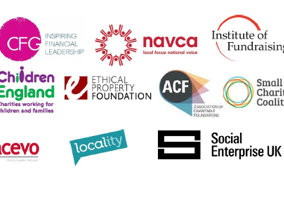Navca has urged local authorities and commissioners to adopt a single point of contact (SPOC) model when procuring services from charities.
In the model, a SPOC charity takes on the management of a local authority contract, as well as monitoring and administration, then shares out the contract's work to separate small charities.
It has been proposed as an alternative to the current prime provider model, whereby a large charity or private organisation is awarded a contract by a local authority then smaller charities bid for subcontracts.
Navca’s latest report, Improving commissioning through a SPOC, says the approach can remove “harmful and outdated competition” and improve collaboration.
It aims to influence commissioners wishing to set up SPOC models, and local infrastructure organisations seeking to establish themselves as SPOC charities.
Examples
Examples of successful SPOC models so far are largely in the health sector. The report says the NHS’s interest in the model is due to it being seen as a way to relieve pressure on health services under increasing pressure from an aging population.
The report gives the example of Voluntary Action Rotherham’s social care prescribing scheme, which links people with long-term health conditions with small charity’s services.
It says independent evaluation by Sheffield Hallam University found it achieved a 7 per cent fall in inpatient admissions, an 11 per cent reduction in inpatient spells and a 17 per cent drop in A&E attendances.
“Organisational sustainability of smaller organisations has been improved by being able to receive funding to deliver services through grants, spot funding and contracts,” the report says.
The report also lists Big Lottery Fund’s Fulfilling Lives programmes, the Southern Derbyshire Voluntary Sector Single Point of Access, the Commsortia Northamptonshire model and City and Hackney Together as successful examples.
Neil Cleeveley, chief executive of Navca, said most small charities are more cost-effective than “old-fashioned mega-services”.
See in Charity Finance
He said: “Politicians and commissioners have been searching for ways to engage smaller organisations more successfully in public services. Here is one solution.
“It has the potential to transform local commissioning, swapping harmful and outdated competition for the benefits of cooperation and collaboration - putting people first and through more person-centred care.”
“Government and commissioners need to take heed of this report. It shows how a SPOC model improves outcomes and saves money. Commissioners need to be able to either adopt this model or be ready to demonstrate how their chosen alternative is better at improving people’s wellbeing.”
Related articles












